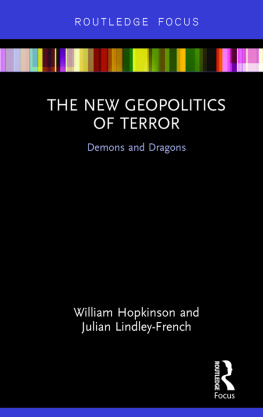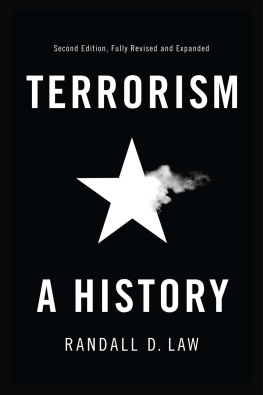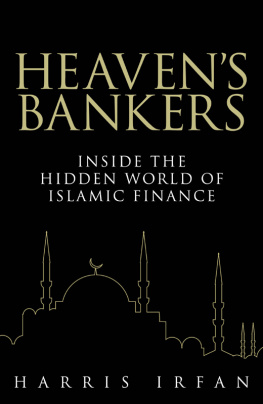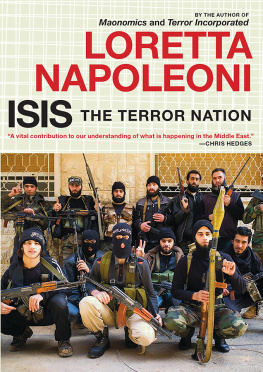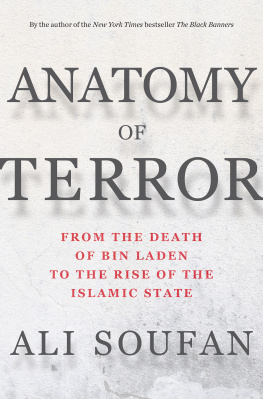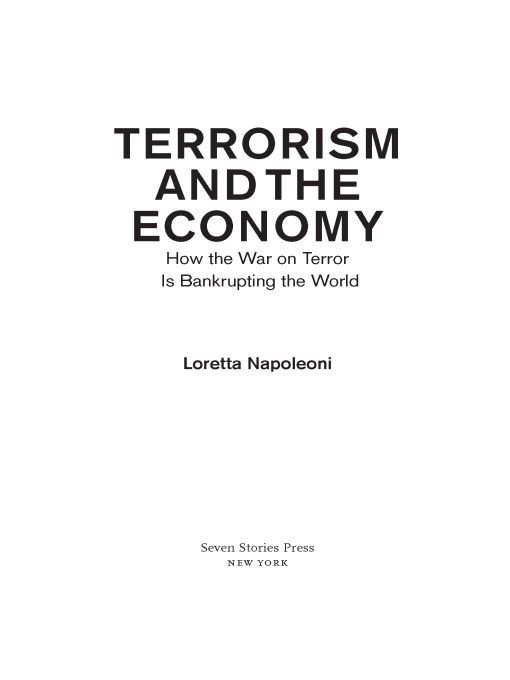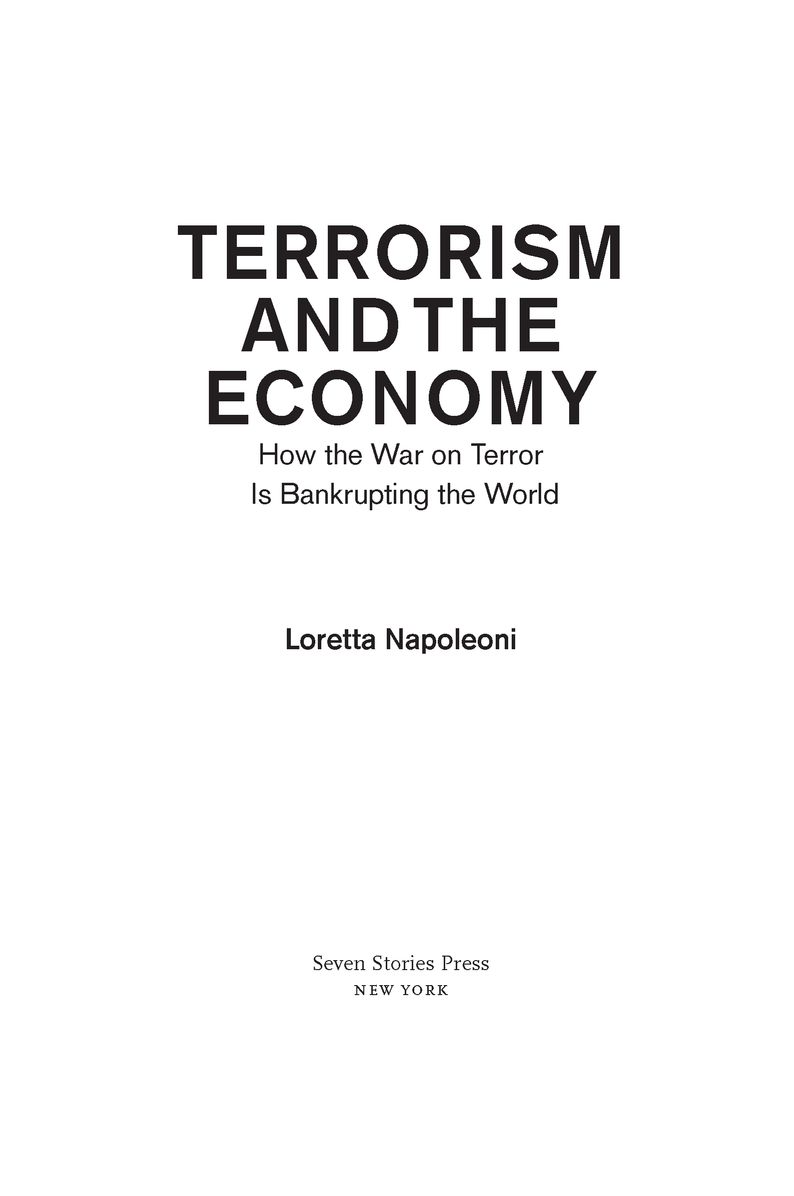Table of Contents
To my children
ACKNOWLEDGMENTS
This being the first book I have written originally in Italian after many years, I must confess that it was a most rewarding experience to work again in my mother tongue. I thank Lorenzo Fazio, director of Chiarelettere, who in the aftermath of the collapse of Lehman Brothers suggested that I write it, and Luigi Bernabo, my Italian agent, who convinced me to accept Chiareletteres offer.
I sat down to work and, by reordering my thoughts and rereading some of my articles and speeches, came to understand so many things that I might never have while commenting daily on the financial crisis. Sometimes one needs to have the time and the courage to reread what one has written in the past to better focus on what is happening in the present.
We are in the throes of a sort of perfect storm, resulting from a confluence of financial abuse and political negligence. Although this idea emerges from many of my articles, it has not been easy to focus on the conceptual while in the midst of the biggest economic crisis of the postwar period. Discussing this book with my American publisher Dan Simon, my editor Ria Julien, and my American agent Diana Finch helped me enormously to avoid the distraction of everyday events and to maintain a long-term perspective.
My guardian angel, Claudia Segre, who works in the financial markets, has been, as always, a precious friend and provider of data, statistics, and commentary, offering a profound vision of this financial earthquake and gracious company during a most valuable week in the United Arab Emirates.
My journalist colleagues at the periodicals for which I write regularlyInternazionale, lUnita, il Caff, Mondo e Missione, El Pas, Vanity Fair Spain, Vanity Fair Italy, and numerous otherslikewise have been fundamental in helping me understand what is not working in global finance.
Sincere thanks go to my friends Laura Paganin and Tonino Giuffr, who hosted Claudia and me in Bahrain, and to Marco Masulli who served as our interpreter. Thanks as well to Stephen Creaturo and Clare Chalmers for their input on the world financial situation, so too to Cristina Masazza, who assists me in all my labors. I also thank Antonio Zoppetti, who maintains my Italian blog, for having dealt so well with my delays in responding to the requests of readers due to the demands of writing. And thanks to the readers, who write in daily with questions, ideas, and suggestions; without them this book surely would have been sterile, devoid of real stories.
My husband and my children, as always, have been a great support and have put up with yet another Christmas spent with documents, statistics, and pages strewn around the house.
PREFACE
Toward the end of 2009, newspaper headlines told us that the recession was over. World leaders complimented each other for having avoided another great depression. Goldman Sachss and J. P. Morgans exceptional profits in the third quarter of the year apparently had triggered the euphoria, yet unemployment kept rising in the United States and in the rest of the world. Economists explained that the world was likely in the midst of a recovery, though it did not command a rise in employment. Most people had difficulty in grasping such a concept. How can we be out of the woods if more and more people are still getting lost inside them? they asked.
On the terrorism front, the news seemed even less optimistic. The US and its allies found themselves bogged down in Afghanistan, and people perceived the exit strategy for Iraq as weak and faraway on the horizon. Pakistan became a big worry. The birth of new armed organizations, among them the Pakistani Talibana group that many believe is funded by the Taliban, Gulf states, and even rogue elements from Indiatroubled Washington and the world. The Pakistani Taliban pursues identical goals to those of Mullah Omars followers: they want to destabilize Pakistan to set up their own Islamic state. Spreading from Waziristan, the tribal belt area where Osama bin Laden and Ayman al-Zawahiri took refuge after the Battle of Tora Bora, they aim to become an active force all over the country.
A buoyant trade in heroin, for which production rose 400 times since the US invasion, bankrolled the Taliban. The organization no longer depended on handouts from Gulf donors and Pakistans Inter-Services Intelligence (ISI), but achieved a steady income by reinventing themselves as narcowarriors. Under the nose of coalition troops and inside a country that Americas military intervention transformed into a democracy, this rugged army of religious fanatics succeeded in keeping the strongest and most modern military machine in the world under check, thanks to the explosion of the narcotics trade. It seems absurd that with coalition forces on the ground, poppy production has risen. But this is exactly what has happened. Even more surreal is the fact that such military intervention is the root cause of the astonishing debt accumulated by Washington and of the credit crunch.
But the failures of the Afghanistan mission go well beyond the military humiliation. The Western-style democracy that Washington exported at the expense of a historically gigantic debt have proven to be a farce. President Hamid Karzai was reelected thanks to bribes and fraud, yet nobody can do anything to stop the charade, a degeneration of the democratic ideals of the founding fathers. The political situation in Afghanistan is a stalemate, both militarily and politically, and the United States has no control over it.
In Iraq, Washington faces a similar ordeal. Corruption and sectarian hatred block all attempts to make inroads into a true democracy. Terrorism has not been defeated and US troops will most likely have to prolong their presence in the country well beyond President Barack Obamas term in office.
One cannot avoid pondering an uncomfortable question: Was it worth bankrupting America and forcing the world into a serious recession in order to export Western-style democracy to countries that do not even understand its true meaning? Was it worth risking the consequences of such a decision, consequences that are likely shaping a new world order, a world in which the US no longer holds a position of unique power but shares its leadership with other emerging countries such as China?
Watching Washington and Beijing interact on the world stage means watching the balance of power shift eastward. At the end of 2009, President Obama visited Asia, not as the most powerful man on Earth but as the leader of a country that is losing two wars, is crippled by the economic crisis, and sees unemployment rising above 10 percent. The US finds itself a leader, who has imposed protectionist measures against its banker China to boost the domestic economy, tariffs that have not triggered a single retaliation from Beijing; China needs America less and less, to the point where US protectionism does not affect it!
Instead, America needs China today more than ever. Barack Obama is the president of a country that, since 9/11, has financed its folly with the savings of Chinese workers, a nation that still relies upon the Chinese to underwrite its mounting debtat least that is what the average Asian thinks. It is from a position of weakness that America now attempts to emerge as a winner after a decade of madness. Will it succeed at untangling the many knots it has created between terrorism and the economy? A timid attempt has been made to close Guantanamo, put an end to the concept of terrorism as war, and bring this despicable phenomenon back into the boundaries of criminality. But the road ahead is full of obstacles.




